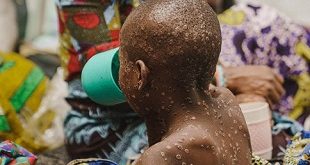The internal agenda
For far too long, the intellectual space, in respect of Africa, has been dominated by a school of thought who posits that Africa is marginal to the global system. Several recent studies have tempered this classical view. We have seen this most prominently reflected in the now well-known publication by McKinsey, depicting a continent re-emerging, a small but growing middle class with increasing discretionary incomes.
Africa is no longer a continent battling with large macroeconomic imbalances but rather micro economic issues and how to spur competitive enterprises that create jobs for the continent’s growing youth.
Nonetheless, sustainability will hinge on the following factors:
First, it is important to address inclusive growth and growing inequalities. It is equally important to increase agricultural productivity, promote small businesses, and ensure gender equality in accessing opportunities.
Other factors include compulsory primary education, providing services and opportunities for disadvantaged areas, getting governments closer to the people in their communities and municipalities and minimizing excessive centralization.
In short, an inclusive agenda must begin by addressing those “legitimacy deficit” issues that have compromised sustainable growth in the past.
And again, as we saw in North Africa, the youth of our continent are calling for a qualitative shift in the way they are governed.
These are not simply bread and butter issues. The concept of a so-called “authoritarian bargain” was discredited by the Tunisian youth who braved the harsh winter early this year on Avenue Bourguiba.
The idea that a system can deliver economic development while closing avenues for a democratic expression is not consistent with sustainability.
In short, an agenda for sustainable development must begin by addressing this “legitimacy deficit.”
Second, there is the issue of adaptation to climate change. The persistent droughts in the Horn, the recurrent fragility of the Sahel are reminders that we do not have time.
Third, there is the management of natural resources and the so called “curse” as, increasingly, new oil findings are announced in Africa every day.
On the basis of recent studies that I have seen, only a dozen countries do not have confirmed oil findings.
But the real challenge is not finding the oil. It is managing it, for the welfare of the people, for both current and future generations; it is about building productive bases that are not dependent on this depletable, exhaustible resource.
A fourth factor is political management of our diversities which have far too often brutally ripped apart our societies and set us back years if not generations.
Fifthly, we must deal with the infrastructure deficit, which is now broadly accepted as a major risk to the continued growth of African economies, of the development of mass transit systems, and an impediment to meeting the needs of exploding urban populations; also of opening up the agricultural hinterlands.
Finally, I return to the issue of accelerating economic integration.
But, and above all, government must get organised to support and nurture the creators of wealth: private business.
The things investors expect to be in place and which we should ensure are in place are: a private sector that is not based on privileges, which is rent seeking, but which is competitive.
Investors expect to see stability, the rule of law and basic institutions that function for all.
In 1980, eighty percent of the Chinese population were poor rural peasants.
That in the mid-1980s, India was the largest aid recipient. Today, aid represents less than 0.5 percent of GDP, and indeed India is now a donor.
Vietnam now has a GDP of 300 billion dollars, with less than 10 percent of its people living below the poverty line.
I could have given examples of many African countries whose trajectory over the last decade is showing the way.
Like post-war European leaders, I believe the single most important contribution that we, the current generation of Africa’s leaders, can make is to accelerate economic integration. It is not easy but it is doable.
Every country on planet earth was poor at some point, some not so long ago.
They have all overcome poverty by tapping into world trade and markets for capital. Africa will not be different.
Sustainable development in Africa will depend largely on what we Africans do.
It is important to promote stability, rule of law and institutions that inspire confidence.
We must inspire the confidence of our own citizens, who we do not want subject to arbitrary rule, social or economic exclusion. We want our young in the diaspora to come back with their skills, innovation and game changing solutions in the full confidence that their efforts will be rewarded not frittered away by kleptocracies.
How about issues beyond our control?
But sustainable development in Africa will also depend on what the outside world does.
Africa is looking for its place under the sun, in a system that offers a level playing field for us all, for the continent to trade its way out of poverty.
Donald Kaberuka is the President of the African Development Bank Group. He gave this speech the Society for International Development Conference in Washington DC
 The Independent Uganda: You get the Truth we Pay the Price
The Independent Uganda: You get the Truth we Pay the Price



